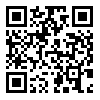BibTeX | RIS | EndNote | Medlars | ProCite | Reference Manager | RefWorks
Send citation to:
URL: http://frooyesh.ir/article-1-657-en.html
Objective: The goal of current study is assessing the role of the structure of parent-child relationship in predicting the compulsive obsession’s severity of adolescent’s by compulsive obsession in Ardabil province. Method: The research design is descriptive in the form of correlation and prediction.the research sample included 84 adolescents by OCD referring to Ardabil’s clinics in 1394 who were diagnosed having OCD by physicians and according to DSM-5 criteria. The participants completed materials of Parent-Child-Relationship-Inventory, The children’s Yale-Brown Obsessive-compulsive Scale (CY-BOCS)-Parent Report and the questionnaire of children’s depression along their parents. Research data were analyzed by descriptive statistics’ indices, Pearson correlation analysis, separation coefficient , multi-variant regression by using SPSS. Results: The obtained results suggested that there is a positive and significant relationship between the capability of recognizing OCD by parents and caregivers and satisfaction with parenting , orientation of tasks and the roles, social tendencies and adolescent’s depression . Also depression of teens has just positive and significant relation with social support of parents and has positive and significant relationship with the ability to recognize the signs and the severity of the adolescents OCD by parents. Discussion: It can be concluded that parent-child relationship structures and adolescents depression can moderately explain the predictions that made by parents.
Received: 2017/02/25 | Revised: 2019/04/11 | Accepted: 2018/04/25 | ePublished: 2019/04/11
| Rights and permissions | |
 |
This work is licensed under a Creative Commons Attribution-NonCommercial 4.0 International License. |






